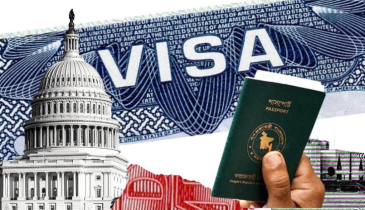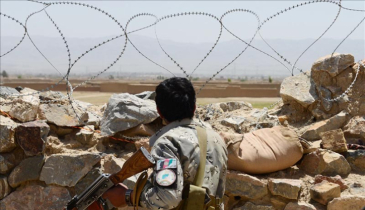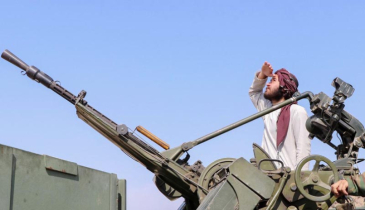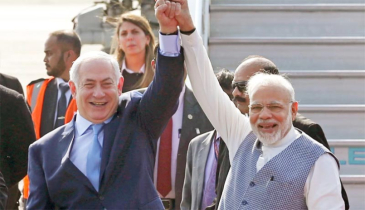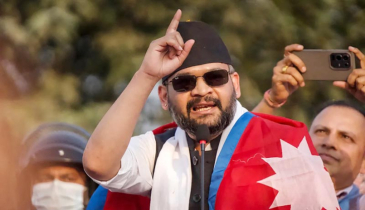Pakistan warns next conflict with India might lead to 'cataclysmic devastation'
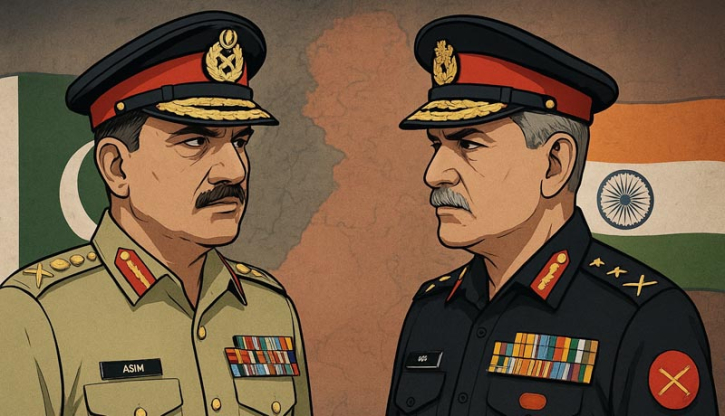
Pakistan’s military has issued a stark warning that any future conflict with India could unleash “cataclysmic devastation,” as war rhetoric between the two nuclear-armed neighbors intensifies once again.
The warning came on Saturday in response to what Islamabad described as “delusional and provocative” remarks from Indian defense officials. Only a day earlier, Indian Army Chief General Upendra Dwivedi declared that India would show “no restraint” in the event of another confrontation, accusing Pakistan of sheltering and backing terrorist networks. He warned that unless Islamabad abandons its alleged support for militancy, its survival on the world map could be at risk.
Indian Defense Minister Rajnath Singh had also sounded a sharp warning on Thursday, cautioning that any “misadventure” by Pakistan in the Sir Creek sector would draw a decisive response capable of “changing both history and geography.” Sir Creek, a 96-kilometer tidal estuary in the marshlands of the Rann of Kutch, remains a long-disputed boundary between India’s Gujarat state and Pakistan’s Sindh province, often leading to clashes over maritime rights, fishing zones, and oil exploration.
Responding to these statements, Pakistan’s Inter-Services Public Relations (ISPR) said the Indian leadership was fueling “jingoism” at the highest levels of its security establishment. The military’s statement cautioned that if another war were to erupt, Pakistan would not hesitate to retaliate with full force:
“In the face of highly provocative statements, we caution that a future conflict might lead to cataclysmic devastation. Should hostilities be imposed upon us, Pakistan will respond with complete resolve, without hesitation or restraint. This time, we shall shatter the myth of geographic immunity, taking the fight to the farthest corners of Indian territory.”
The warning also underscored Pakistan’s assertion that its defense capabilities are fully prepared to counter any Indian action, emphasizing its resolve to maintain what it called “credible deterrence.”
The current flare-up in rhetoric comes just months after the worst cross-border escalation in years. In April, an attack on a tourist resort in Pahalgam, in Indian-administered Kashmir, killed dozens and reignited tensions. New Delhi blamed the assault on Pakistan-based groups, while Islamabad strongly denied involvement and called for an international probe. India responded with Operation Sindoor, striking what it claimed were militant facilities across the border. Pakistan retaliated with Operation Bunyanun Marsoos, leading to four days of aerial exchanges that pushed the region to the brink of full-scale war.
The standoff only eased on May 10, when US President Donald Trump intervened to broker a ceasefire. But the episode left both sides on edge, with international observers warning that another clash could spiral out of control given the nuclear capabilities on both sides.
Security analysts say the renewed verbal sparring underscores the fragility of India-Pakistan relations, which remain hostage to disputes over Kashmir, terrorism allegations, and unresolved border demarcations like Sir Creek. With both sides unwilling to back down and hardline rhetoric escalating, the risk of another military confrontation looms larger than ever.
.png)



